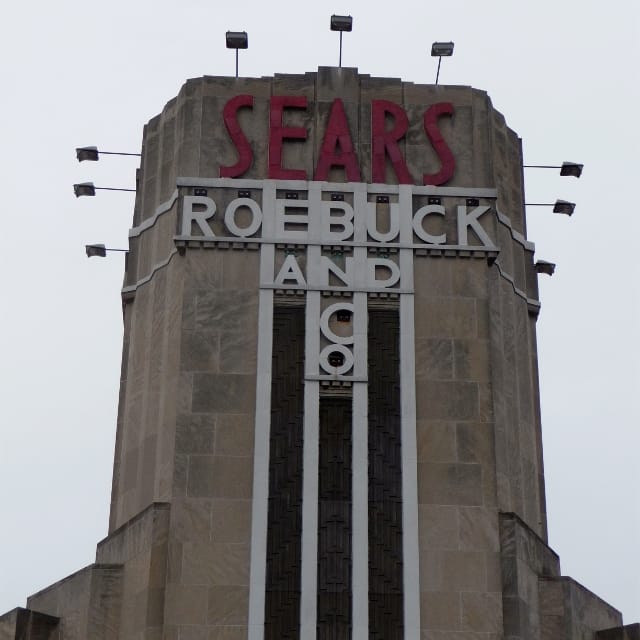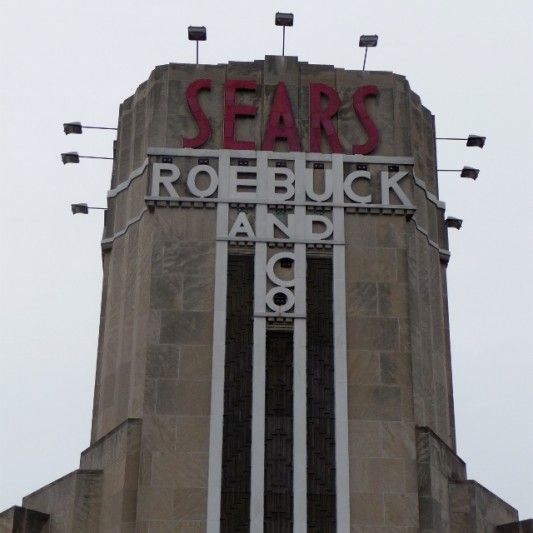Sears Is Now a Landmark


Yesterday the Landmarks Preservation Commission unanimously approved landmark status for the Sears Roebuck & Co. Department Store at 2227-2323 Beverley Road.
What that means for the bricked-over windows, or the possibility of using the huge parking lot for a flea market as one reader suggested, remains to be seen, but at least for now it will stay a Sears. Sears merged with Kmart in 2005, and though Sears has plans to close several Sears and Kmart stores, this location was not one of the ones on a list announced in February.
What else does this mean for that spot? Do you think more people will want to head over to check it out now that it’s been landmarked, maybe giving a push to the business at Sears as well? Or does landmarking not affect visits, at least in the short-term?
From the LPC:
The Sears Roebuck Department store was completed in 1932 and designed in the Art Deco style by the Chicago architecture firm of Nimmons, Carr & Wright, with Alton L. Craft, a New York City architect. The firm designed warehouses and stores for the retailer in 65 cities and 28 states, but the Flatbush branch is its only known work in New York City. Craft’s commissions included the conversion of a factory building into classrooms for the Polytechnic Institute of Brooklyn and a municipal parking garage on 53rd Street and Eighth Avenue in Manhattan.
The three-story building is located on a trapezoidal lot at the southeast corner of Bedford Avenue and Beverly Road, and has a conspicuous 10-story corner tower that displays the store’s name in large capital letters on all four sides. It’s faced mostly with limestone, with vertical cast-stone bands flanking the windows that read as alternating dark and light vertical stripes, and abstractly patterned spandrels beneath each pane.
Sears was founded in Chicago in the early 1890s as a mail-order retailer catering to rural America. It began to open free-standing stores around 1925 and grew to more than 600 sites by 1941. The Flatbush store debuted at the height of the Great Depression in 1932, at first providing 300 jobs. The opening ceremony, held November 5, included an address by Eleanor Roosevelt, who at the time was the first lady of New York State. It was her last public appearance before her husband, Franklin D. Roosevelt, was elected president of the United States. She is said to have made the store’s first purchase, a pair of baby’s booties.
Sears built an auditorium inside the store in 1936 that could accommodate 650 people, and added a 43,000-square-foot wing in 1940, as well as more than 100 employees.




